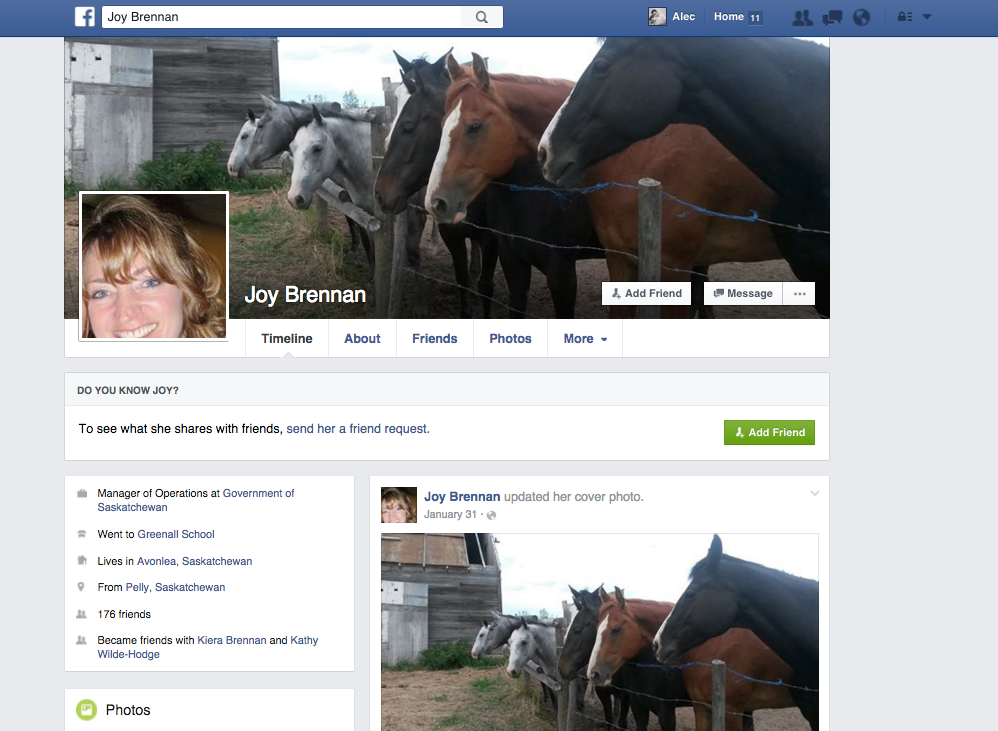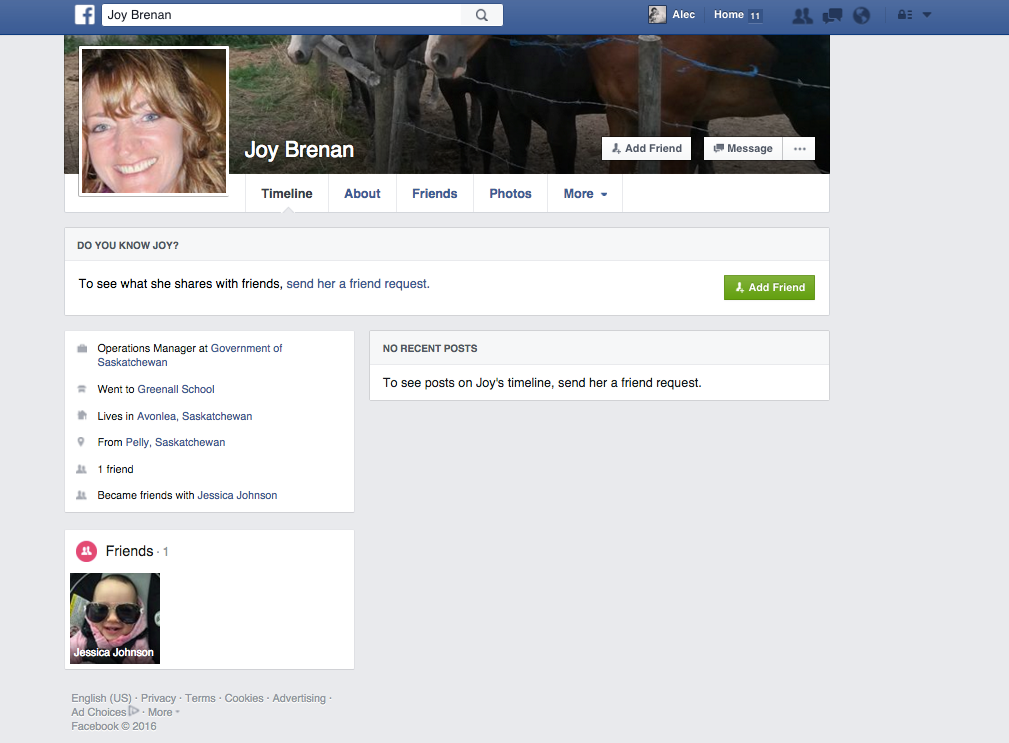Over the past week, I’ve had a number of people share articles with me related to Facebook’s testing of a new feature that is purported to alert Facebook users when it finds that someone is impersonating your account. Once the user is alerted, that user is then able to report the fraudulent account and pray that Facebook will take it down. However, given my 8 years of experience with this problem, I feel that I am qualified to say that this approach will simply not work for a number of reasons.
- Facebook often fails to take down fraudulent profiles: While I have successfully had Facebook take down hundreds of fake profiles (I find several new ones each day), there are certain profiles that it simply does not take down. For instance, I’ve been trying to get Facebook to take down the account of “Trofimov Sergei” (a user who is clearly using a profile photo of me and my son) for over a year now. Yet, no matter how many times I report the account, the profile remains. More disturbing is the fact that if you search for “Trofimov Sergei” on Facebook, you will see dozens of fake accounts by the same name using stolen photos of other men. Most of the deception is done in private communication with the (potential) victims, but every once in a while, you will find a public post where the fraudsters are asking for money for a feigned illness. Luckily, there are many people (often former victims) who do uncover and share their knowledge of these fraudulent accounts in order to contain some of the damage.
- Scammers may use photos of your children as their profile photo: After hundreds of reports, Facebook still refuses to take down the account of “Nelson Colbert,” a scammer who is using photos of my children as a profile photo. When you report an impersonation in Facebook’s current reporting tool, you ultimately have to choose one of the following: A) “This timeline is pretending to be me or someone that I know”, or B) “This timeline is using a fake name.” I have been completely unsuccessful when using Option B, and I have had only limited success with Option A: when you choose this option, you are asked to identify the user who is being impersonated, but when I identify myself, Facebook quickly rejects the report as it is clear that I am not the person in the profile photo. I have attempted to use Facebook’s “Report An Underage Child” tool (which is only available in Canada after you logout, apparently), but this has also been completely unsuccessful. The most unnerving part of this particular profile is that I receive more reports about it from victims than I do about any other. In fact, there are literally dozens of pages of search results that relate to “Nelson Colbert” and this scammer’s involvement in fraudulent activities. Yet, it appears that Facebook has made this account untouchable. I suspect that the scammer behind it may have created falsified documentation to get the account validated internally.
- Scammers may use your elderly mother’s photo as their profile picture: These criminals often create sophisticated networks of friends and family in their schemes. For instance, the scammers created a fake profile using my mother’s photos and named her Maria Gallart. I cannot report this profile directly to Facebook; instead I am only able to report it to my mother to deal with it. I did so, and as you would imagine, the distress, anxiety, and uncertainty that this caused my nearly 80-year-old mother was not something that she needed nor something that she necessarily knew how to deal with. And even with my assistance, reporting the fraudulent account from my mother’s account (many times) has not led to the account being taken down.
- Facebook doesn’t always believe the “real” person in cases of identity fraud: Facebook has taken down my account twice because a scammer reported me as being the fake Alec Couros. In both cases, I had to submit my passport to Facebook via email for verification (which is incredibly problematic for security reasons). I am unsure of why I had to do this twice, and I am puzzled as to why my account wasn’t verified either time (even though I have applied for verified status). Facebook’s proposed system will have to rely on verifying an account using a secure, consistent, and foolproof system if it is to be successful. To date, the company has failed miserably in this respect.
- Facebook’s proposed system could give an advantage to the criminals: Fraudsters have often used photos of me that I have never previously used on Facebook. Based on the incomplete details provided so far about this new alert system, one might assume that if I were to use any of my personal photos after a scammer had done so, I would be the one flagged as an impersonator. Thus, the criminal might easily be regarded as having the authentic profile, which sounds like really bad news.
The Mashable article shared at the beginning of this post states that Facebook is rolling out these features as the company attempts to push its presence into regions of the world where “[impersonation] may have certain cultural or social ramifications” and “as part of ongoing efforts to make women around the world feel more safe using Facebook.” If that is the goal, Facebook’s proposed technology won’t help, and it may very well make things worse for women (or anyone) using the site. Already, Facebook is plagued with identity thieves who adversely affect the safety, comfort, and freedom of many of its users, and the problem will only continue to grow with these types of half-baked efforts. You may not be affected now, but unless Facebook does something to fully address this issue, you almost certainly will be.




